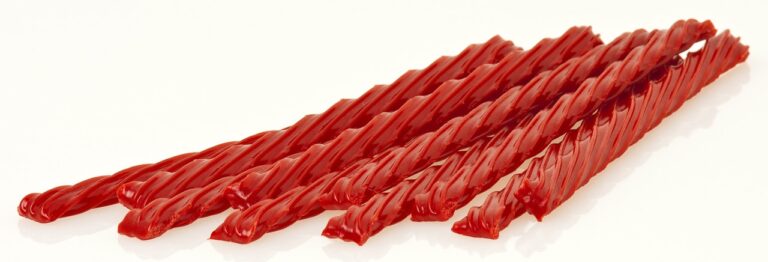Investigating the Role of Fiber in Protein Bar Digestion: 11xplay com, Laser247, Skylivecasino signup
11xplay com, laser247, Skylivecasino Signup: Investigating the Role of Fiber in Protein Bar Digestion
Have you ever wondered why some protein bars leave you feeling full and satisfied, while others seem to digest quickly and leave you hungry shortly after? The answer may lie in the amount of fiber found in the protein bar.
Fiber is a crucial component of our diets, known for its digestive health benefits and ability to keep us feeling full longer. When it comes to protein bars, the presence of fiber can significantly impact how our bodies digest the protein and other nutrients found in these convenient snacks.
In this article, we’ll explore the role of fiber in protein bar digestion and how it can affect our overall satisfaction and nutrition.
Understanding Fiber in Protein Bars
Fiber is a type of carbohydrate that our bodies cannot digest. Instead, it passes through our digestive system, aiding in the digestion process and providing a variety of health benefits. Fiber is found in plant-based foods like fruits, vegetables, whole grains, and legumes.
When it comes to protein bars, some varieties contain added fiber to boost their nutritional profile and provide additional health benefits. Fiber can come from sources like chicory root fiber, oat fiber, or soluble fiber like psyllium husk.
The Role of Fiber in Digestion
Fiber plays a crucial role in digestion, helping to regulate bowel movements, prevent constipation, and promote a healthy gut microbiome. Fiber also slows down digestion, which can help manage blood sugar levels and keep you feeling full longer.
When it comes to protein bars, the presence of fiber can impact how quickly the bar is digested and absorbed by the body. Protein bars with a higher fiber content are likely to digest more slowly, providing a sustained release of nutrients and energy over time.
Fiber can also help to balance out the macronutrient composition of a protein bar. For example, if a bar is high in protein and fats but low in carbohydrates, the addition of fiber can help balance out the overall nutritional profile and prevent a rapid spike in blood sugar levels.
Impact on Satisfaction and Hunger Levels
Protein bars are often consumed as a convenient snack or meal replacement, so it’s essential to consider how they can impact our satisfaction and hunger levels. Fiber plays a significant role in this regard, as it can help keep us feeling full and satisfied after consuming a protein bar.
Protein bars with a higher fiber content are more likely to provide a lasting sense of fullness, preventing you from feeling hungry shortly after eating. This can be particularly beneficial for those looking to manage their weight or control their food intake throughout the day.
On the other hand, protein bars with low fiber content may digest quickly and fail to provide sustained energy or satiety. If you find yourself feeling hungry shortly after eating a protein bar, it may be due to the lack of fiber in the bar.
Choosing the Right Protein Bar
When selecting a protein bar, it’s essential to consider the fiber content along with other nutritional factors. Look for bars that contain a balance of protein, carbohydrates, fats, and fiber to provide a well-rounded snack or meal replacement.
If you’re looking to maximize the digestive benefits of fiber in a protein bar, opt for varieties that contain whole food ingredients and natural sources of fiber like nuts, seeds, and fruits. Avoid bars with high amounts of added sugars or artificial ingredients, as these can negate the positive effects of fiber.
FAQs
Q: How much fiber should be in a protein bar?
A: The amount of fiber in a protein bar can vary depending on the brand and ingredients used. Aim for bars that contain at least 3-5 grams of fiber per serving for optimal digestive health benefits.
Q: Can fiber content affect the taste of a protein bar?
A: Fiber can impact the texture and taste of a protein bar, especially if it comes from sources like chicory root fiber or oat fiber. Some people may find that bars high in fiber have a chewier or denser texture compared to bars with lower fiber content.
Q: Are there any potential side effects of consuming high fiber protein bars?
A: Consuming high fiber protein bars can lead to gastrointestinal discomfort, bloating, or gas in some individuals, especially if they are not used to a high fiber diet. It’s essential to drink plenty of water and gradually increase your fiber intake to avoid these side effects.
In conclusion, fiber plays a crucial role in protein bar digestion, impacting how quickly nutrients are absorbed and how long you feel satisfied after eating. Choosing protein bars with a higher fiber content can help support digestive health, promote satiety, and provide lasting energy throughout the day. Remember to check the fiber content along with other nutritional factors when selecting a protein bar to ensure you’re getting the most out of your snack or meal replacement.







